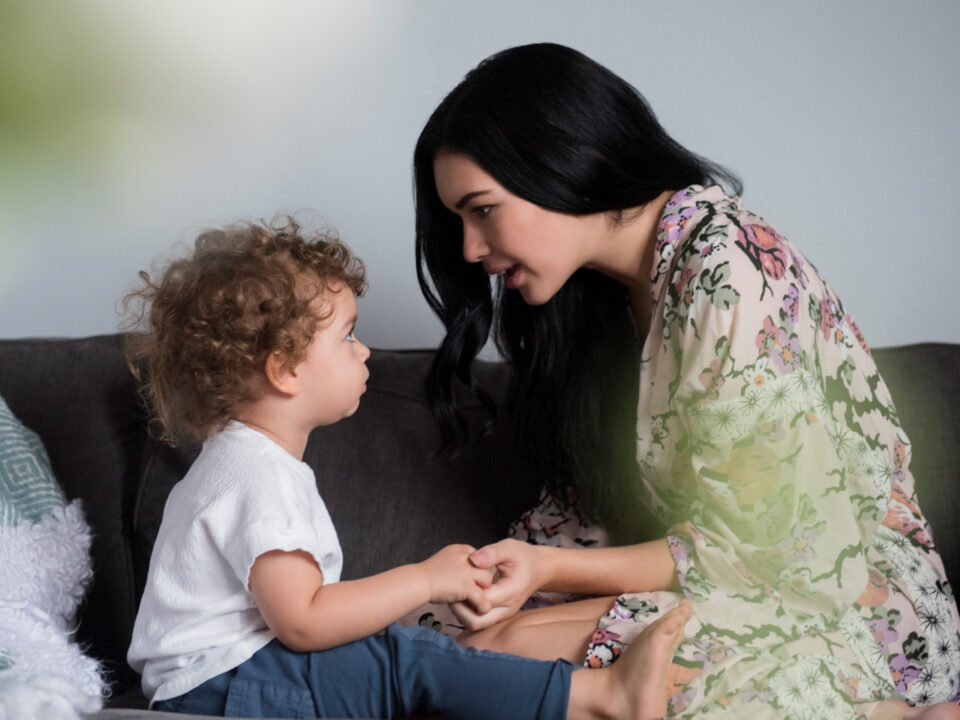
Help! My Toddler Is Biting
These expert tips will help you both get through it.
Your little one has taken to chomping down on other kids and adults. It’s mortifying, painful, and worrisome. A parent, a teacher, and a children’s therapist weigh in on what’s behind biting and how to put a stop to it.
The preschool teacher says…
Children bite when they have a big emotion or are trying to communicate. Preparing your response ahead of time allows you to stay composed in the moment. Say calmly: “I am not going to let you bite [your sister, your friend, me]” while placing your arm between your child and the other person. This phrasing puts you in control. Then, determine what your child is trying to communicate and teach what to do instead: “It looks like you want to play. You can say ‘my turn.’” Or tell your child: “You seem frustrated. Let’s take a break and calm down.” Throughout your child’s day, find ways to teach them what to do or say so they can fill that toolbox and be ready. It may take several months to learn the right tools. Be consistent and patient.
—Meaghan Burns, Infant/Toddler Master Teacher at Fisher Early Learning Center, University of Denver and mother of four
The children’s therapist says…
Toddlers bite when their feelings overwhelm them and they aren’t able to control their behaviors. When your child bites, remember that they feel out of control, which can be scary and overwhelming for them. It’s important for parents to regulate their emotions and behaviors to help the child manage theirs. When a child bites: 1. Be firm and calm, saying “no biting.” 2. Empathize with their feelings while setting limits—all feelings are okay but not all behaviors are okay. 3. Teach alternative strategies once your child is calm. 4. Offer opportunities for a “re-do” to handle the situation better. 5. Notice what preceded the bite and look for patterns to help head off future biting. If biting is frequent and the child is not responsive to adult interventions, consult with a physician because there may be underlying medical, developmental, or mental health conditions that should be addressed.
–Dr. Helen Egger, cofounder of the children’s mental health app, Little Otter
The mother says…
We were embarrassed and concerned when our toddler son bit a couple of his friends. We discovered that the reason behind the biting was actually related to sensory issues—sensory processing disorder, specifically. His preschool teacher reassured us that we were not terrible parents and he was a really sweet boy, but that he also seemed to have some additional sensory needs. An occupational therapist gave us tools and a “sensory diet” for him to get that chewing fix (from certain textured foods and objects) without biting other people. For other kids, that might mean something different. The important thing was that we didn’t shame him or yell at him. We showed him gentle ways to communicate and better ways to get what he needed from a sensory perspective.
–E.S., mother of nine-year-old and 12-year-old boys, Denver





